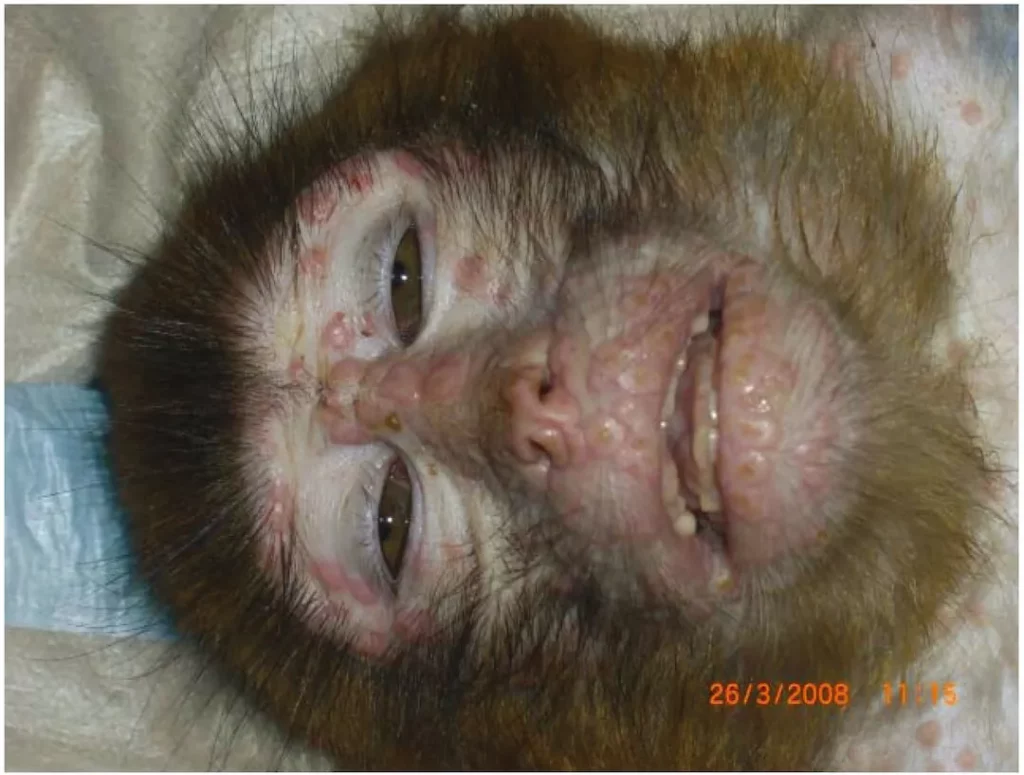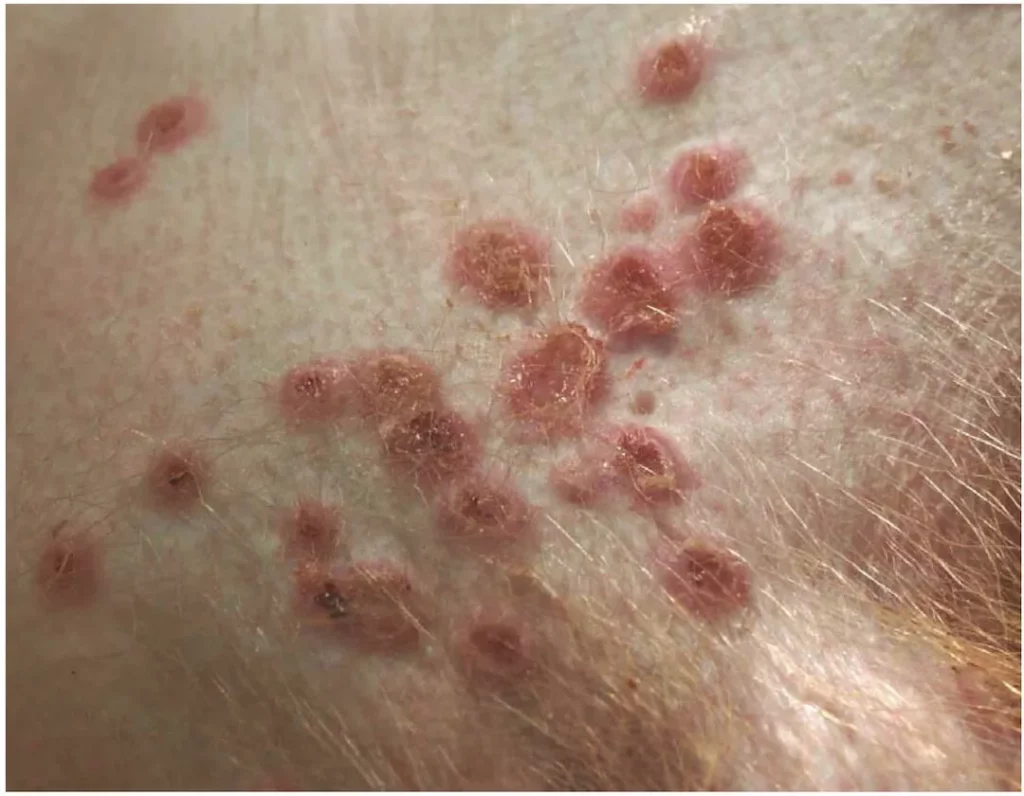Monkeypox is a rare viral disease that is similar to human smallpox. Monkeypox was first discovered in laboratory monkeys in 1958. The disease is found mostly in Central and West Africa. Monkeypox is caused by the Monkeypox virus. This virus is related to the smallpox virus. In this article, I will discuss about Monkeypox Symptoms, Causes, Prevention, and Treatment.
What Causes Monkeypox?
The Monkeypox virus is found in some animals, such as rodents and monkeys. It can spread to humans through contact with the virus from an infected animal, such as a pet. Monkeypox can also spread from person to person through close contact, such as touching or being in the same room with an infected person.
How Monkeypox Spreads?
Monkeypox is spread from person to person through close contact.
The Monkeypox virus is spread through the following methods:
- Direct contact with the Monkeypox rash
- Body fluids
- Respiratory secretions of an infected person
- Contact with infected animals, such as monkeys, squirrels, and rodents
- Contact with infected material, such as bedding or clothing
The incubation period for Monkeypox is usually 7-14 days but can range from 5-21 days.
Is Monkeypox Contagious?
Yes, Monkeypox is most contagious during the first week of the illness.

Is There a Monkeypox Outbreak?
Yes, Monkeypox outbreaks have been reported in several African countries including the Republic of the Congo, Angola, Sudan, Ghana, and Nigeria.
Diagnosis of Monkeypox
Monkeypox can be difficult to diagnose because it looks like other diseases, such as chickenpox, smallpox, and measles.
A diagnosis of Monkeypox is made by taking a sample of the Monkeypox rash and sending it to a laboratory for testing.
What Are the Symptoms of Monkeypox?
The Monkeypox rash starts as small bumps that turn into blisters. The Monkeypox rash can cover the entire body. Monkeypox is accompanied by:
- Fever
- Headache
- Muscle pain
- Exhaustion
- Swollen lymph nodes

Is Monkeypox Deadly?
Monkeypox is rarely deadly in humans, with a fatality rate of less than 1%. However, Monkeypox can be deadly in children under the age of 5.
How Monkeypox is Treated?
There is no specific Monkeypox treatment. Treatment is focused on relieving symptoms and includes the following:
- Bed rest
- Fluids
- Pain relievers
- Antibiotics to treat secondary bacterial infections
Is There a Vaccine For Monkeypox?
Yes, there is a Monkeypox vaccine that is used in some parts of Africa. However, the Monkeypox vaccine is not yet licensed for use in the United States.
Monkeypox Prevention Tips
You can prevent Monkeypox by doing the following:
- Wash your hands often with soap and water.
- Avoid close contact with people who are sick.
- Avoid close contact with animals that could be infected with Monkeypox.
- Do not touch Monkeypox lesions or body fluids of an infected person.
Monkeypox Vs Chickenpox
Monkeypox and chickenpox are both caused by viruses in the poxvirus family. Both Monkeypox and chickenpox start with a fever and rash. Monkeypox is more severe than chickenpox, with a higher fever and more intense rash.
Monkeypox is also more likely to cause serious complications, such as pneumonia and death.

Conclusion
Monkeypox is a rare viral disease that is similar to human smallpox. Monkeypox is caused by the Monkeypox virus. This virus is related to the smallpox virus.
Monkeypox can be deadly in children under the age of 5. There is no specific Monkeypox treatment. Treatment is focused on relieving symptoms and includes the following: bed rest, fluids, pain relievers, and antibiotics to treat secondary bacterial infections.
You can prevent Monkeypox by doing the following: wash your hands often with soap and water, and avoid close contact with people and animals who are sick.
Thanks for reading!
If you enjoyed this story, you may want to checkout Stinging Nettle Rash Symptoms and Treatment and Lupus Symptoms in Women: Causes, Diagnosis and Treatment.
Sources

About The Author
M.D Mark D. is a Health and Wellness professional writer. Mark has authored many health articles around the following topics: Men’s Health, Women’s Health, Fitness, Nutrition, Pets Health, Mental Health, Medicine, and Supplements.